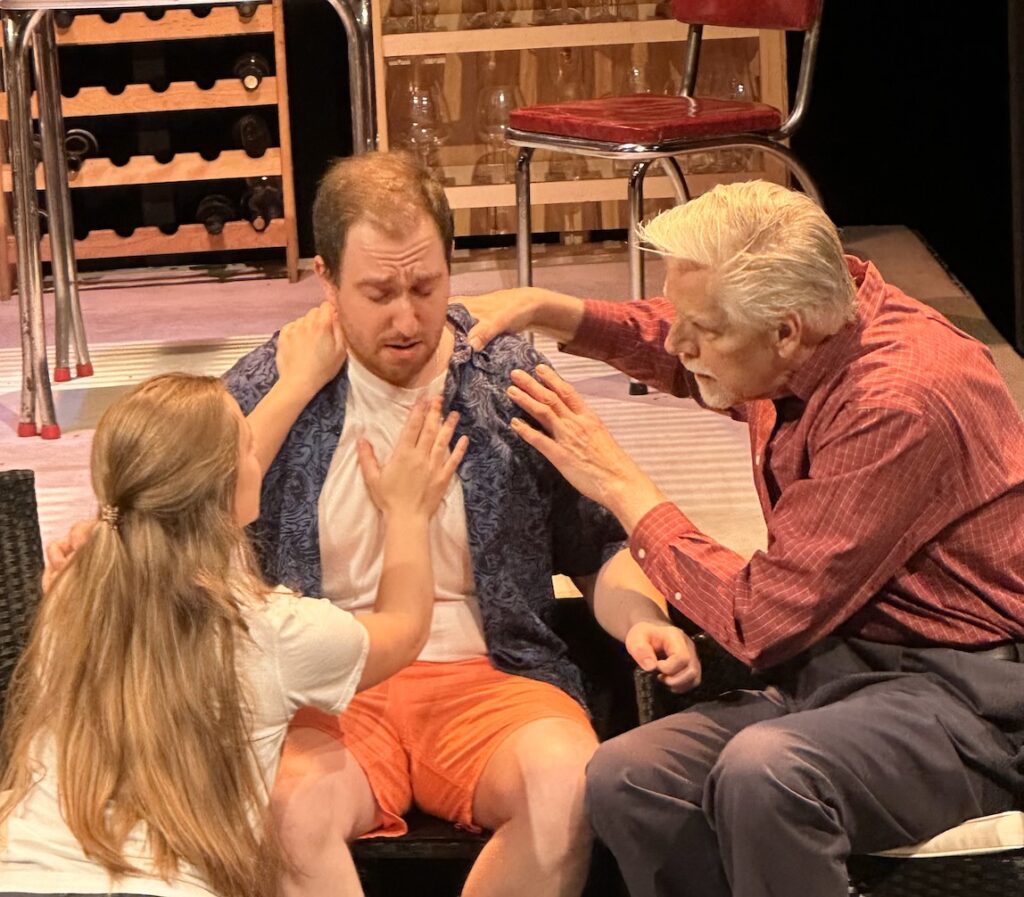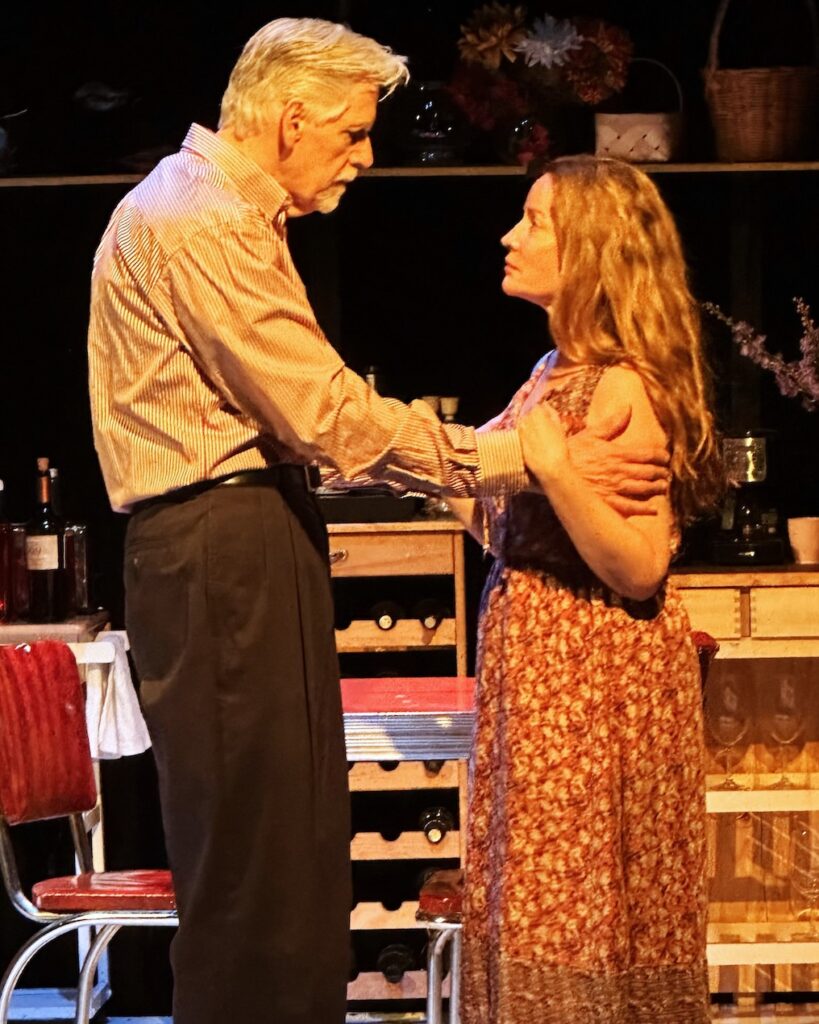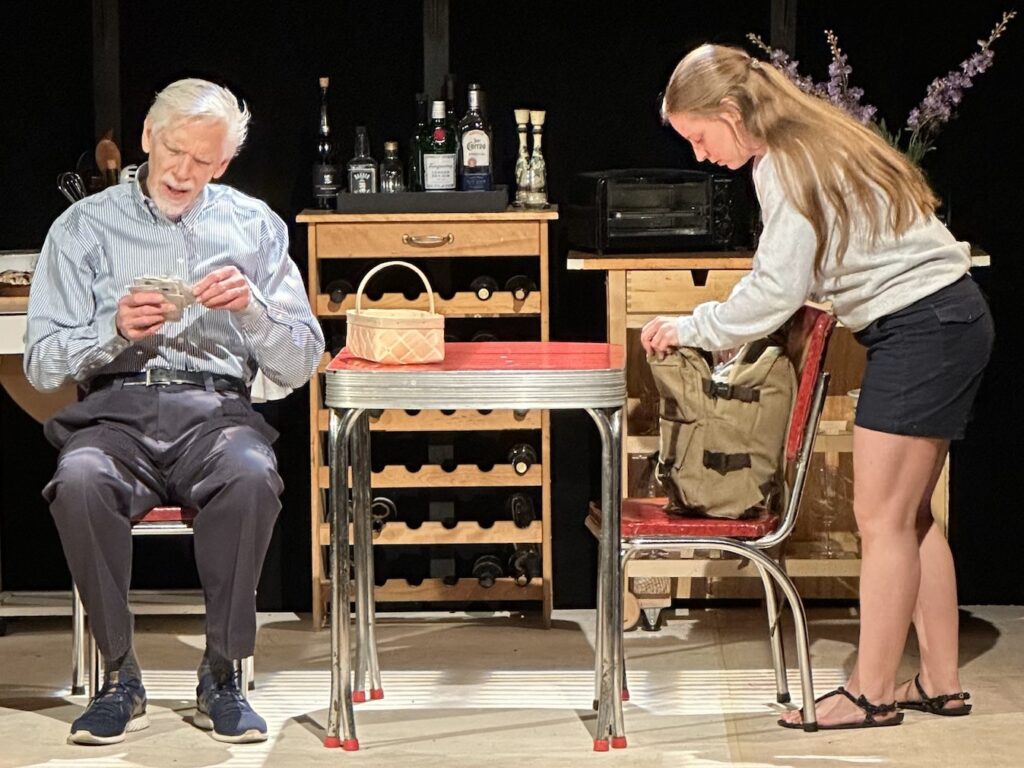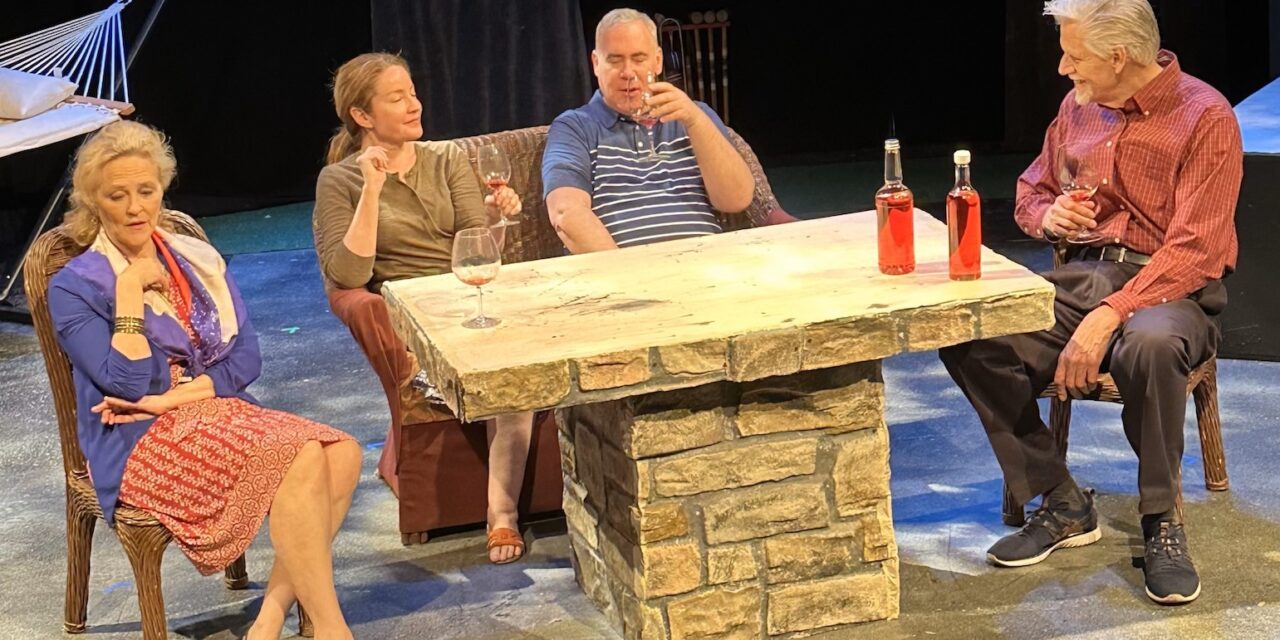By Ron Fassler . . .
In Richard Ploetz’s The Country Play, now at the Theater for the New City, the author wants desperately for us to make a connection with what he has written—the way Anton Chekhov once did. Everything is meant to invoke the Russian playwright, even with one of the characters stating, “I feel like a character in a Chekhov play.” That’s the sort of heavy-handedness the evening is riddled with right from the start. Even before there is any dialogue, there’s a minutes-long sequence where we watch bits of business unfold. Much of it is telegraphed inelegantly, worsened when the characters start speaking. Then the real problems begin.

In wanting to emulate Chekhov, Ploetz writes in the stilted manner of a bad Russian translation. He gets it all wrong since he forgets to write the subtext, so everyone says exactly what they mean—the opposite of what happens in a Chekhov play. Director Job Ethan Christenson doesn’t do the actors any favors as he hasn’t figured out a way to make any of it believable. None of the stage behavior seems rooted in real life. You are fully aware these are actors in a play. But perhaps his hands are tied, especially in the play’s first thirty minutes because nothing happens. And even though that’s a common complaint about Chekhov’s plays, that’s usually when they are staged badly. When done right, his characters forever missing the forest for the trees is deeply tragic and often, more often than not, hilariously funny (think Uncle Vanya).


In terms of what little plot there is, it’s incredible that nine characters are involved. Ostensibly, it’s Michael Turner’s story, a sixty-year-old professor readying for his retirement and hoping to settle with his wife on an estate in northwestern Connecticut which he inherited from his father, who has recently died. The fact they were estranged for eighteen years seems something that we’ll get to the bottom of, but never do; a red herring that goes nowhere. He is married to an unpleasant woman named Catherine, who side-eyes everyone in the manner of a silent film villain. There seems to be a hostile relationship between Turner and his stepmother Marie-Claude, a proud French woman. Any hopes she’ll be an important character are dashed when she is sidelined for much of the play (although an out-of-the-blue moment for her character in Act Two is attempted and fails). There are other guests at the house, a daughter and her cousin, a nearby neighbor and a local school teacher, but their collective presence exists only to invoke stock Chekhov characters out of the aforementioned Uncle Vanya, as well as The Seagull, Three Sisters and The Cherry Orchard. The only problem is that, unlike their counterparts in those plays, these characters are dull as dishwater. And don’t get me started on a gun being produced late in the first act and having it go off in the second. It only served to leave audience members scratching their heads, wondering why it was introduced at all.


Only a small handful of the actors acquit themselves well in their roles; sadly, the lead is not among them. Stan Buturla’s performance as Michael is much too actorly, relying on a rich voice in which he intones his lines as opposed to feeling them. I thought that two actors did nice work in the one worthwhile scene in the play, between Nick Ruggeri and Elizabeth Alice Murray, who settled into their roles nicely after rough starts (again, that could have been the result of the clunky exposition they were saddled with). I also liked Marc Castle as Sam Munson, who played a nearby neighbor. Every time he came on and then waddled off home to his wife we never see, I could imagine her more vividly than some of the actors on stage due to Castle’s naturalness as an actor. Total believability in everything he did. A shout out, too, for Marc Marcante’s nice set design.
Earlier, I chided the playwright for the use of the line “I feel like a character in a Chekhov play.” I bring it up again because a line that followed a few seconds later was “I’ve been reading a lot of Chekhov lately.” My suggestion would be that Mr. Ploetz go back and reread Chekhov because he still has a lot to learn. The Country Play comes across as written by someone who thinks they’ve paid attention to the lessons of a master, but in truth, still has a far way to go before coming close to understanding what those lessons are.
The Country Play. Through May 14 at Theatre for the New City (155 First, between East Ninth and Tenth Streets). www.theaterforthenewcity.net


















